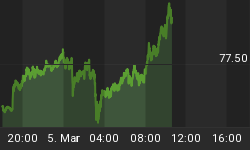Costs continue to go up for the goods and services that Americans consume on a daily basis. While today we can all buy stocks, real estate and fill up our gas tanks with fewer dollars than in 2007 and early 2008, the costs of other items continue to go up. For instance, I just received a bill from the CT Secretary of State for the fee I pay every year for my LLC. The fee has doubled. Inflationists point to this type of thing and argue that this is a sign of inflation.
I disagree. State revenues have collapsed across this country. In trying to find some balance between outlays and revenues, and without making the politically unpopular decision to raise personal income tax rates, some states are opting to raise the hidden and other fees, such as this administration fee I am paying for my business. But that is akin to choking the healthy taxpayers and businesses that remain until they, too, go belly up.
Rather, states should be slashing their payrolls and entire departments. I have argued in prior posts that government needs to cut taxes, and cut itself in half. A government refusing to do that and therefore raising taxes and fees has nothing to do with inflation or deflation. That is simply a government living in the past, where the boom times that were fueled by credit inflation produced more government living on ballooned salaries. Similarly, if a business owner with crashing sales due to a new competitor raises the price for his product just so he can continue to pay himself a large bonus, does that price increase have anything to do with inflation? It doesn't. It is simply bad management.
Now that the debt bubble has burst, government will obviously find it difficult to pay its bills. It therefore needs to adjust to the new reality by reducing headcount and cutting salaries. Salary levels are not sacrosanct and in depressions they are one of the last dominoes to fall. When that new reality is finally understood and acted upon (not just by government but across the economy), replacing the old reality where taxes, fees and the high cost of adhering to onerous regulation is a significant financial burden for individuals and business, it will ease and reverse the price increases that are wrongfully viewed today as inflation.
Deflation cannot happen today we are told because we are not on a gold standard, and the government can just inflate. It is argued that the crash of 1929 led to deflation because the US was on a gold standard then, i.e., the US dollar was fixed to the price of gold. The inflationists like this argument. But it is nonsense. We must remember that despite the gold standard, the 20's were very inflationary. In 'America's Great Depression' Murray Rothbard tells us the money supply increased over 60% during that time, an average annual increase of 7.7%, with the entire boom fuelled via private credit expansion, not the "printing" of greenback cash.
If the gold standard wasn't the cause of the credit creation & inflation on the way up (no one argues that it was), why would a credit contraction/deflation on the other side be the result of the gold standard? It wasn't. Deflation occurred in the 1930's because excessive credit creation in the 1920's led to a bubble that burst and brought about the inevitable crash, not because the US was on a gold standard. You don't need a gold standard to have deflation.
Whether we get there or not we will have to see, but what is clear to us is that in deflation the currency will rally. Richard Russell and others have argued for years that a debt deflation is akin to a synthetic dollar short position, in that debt holders (presumably carry-trade investments in other currencies) will need to sell those assets and buy dollars to pay off their debts, strengthening the dollar. The retort has been that debt can be reneged on; hence the dollar short thesis is not valid. In the realm of the short-seller, it is an interesting argument: if you renege on that debt, you don't need to sell the foreign asset to purchase the dollar, therefore there would be no short squeeze.
We disagree with that view. One needs to step out of that realm and realize that the act of reneging on debt is by definition deflationary - a point made by Robert Prechter in his brilliant book "Conquer the Crash," which we urge all subscribers to purchase and read. Since the money and credit supply factor into the value of the dollar, less debt in existence means the money supply has gone down. A reduced money supply means an increase in the value of the dollar.
The foregoing contained excerpts from recent commentaries made available to MurkyMarkets.com subscribers.
















